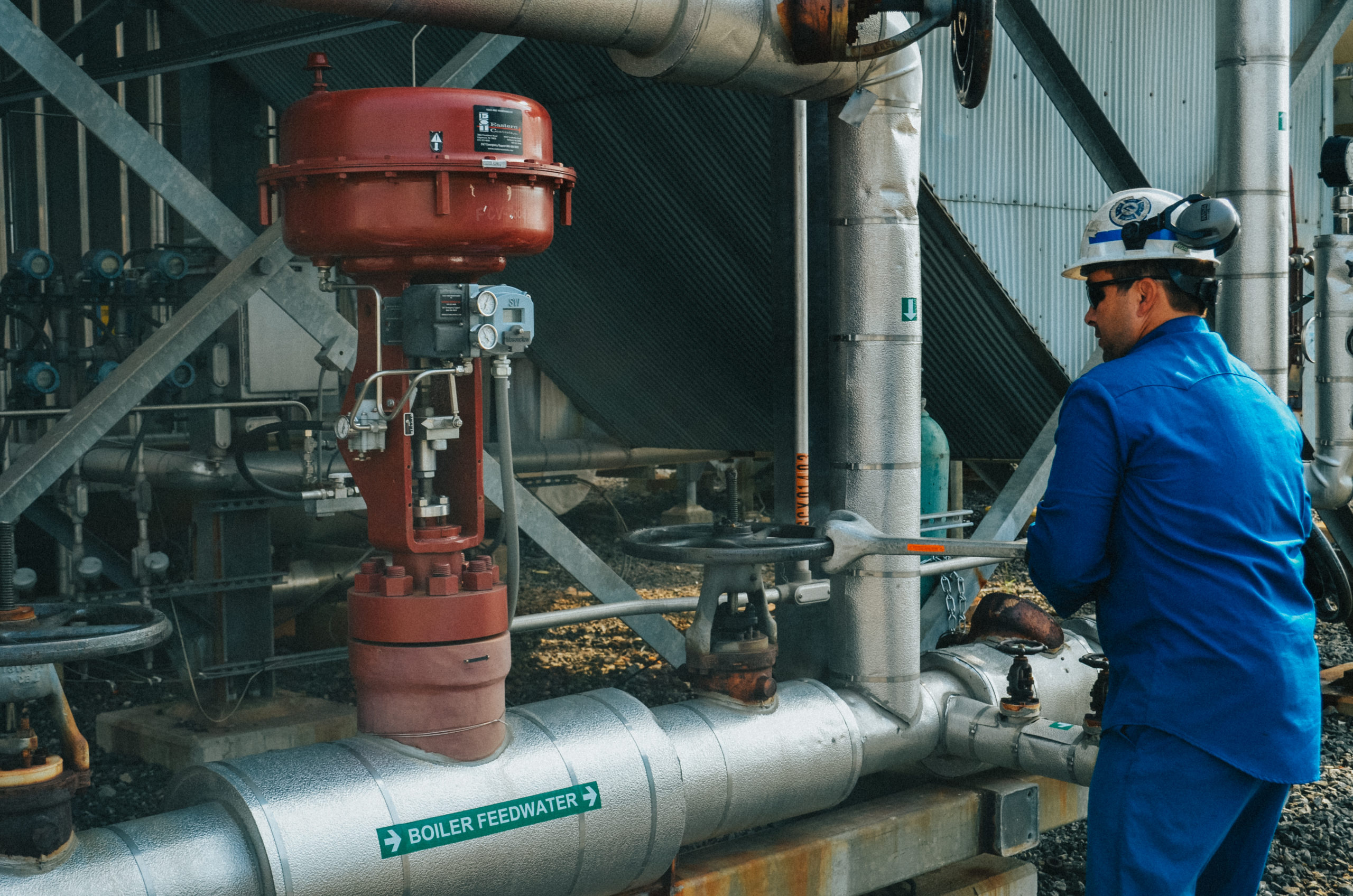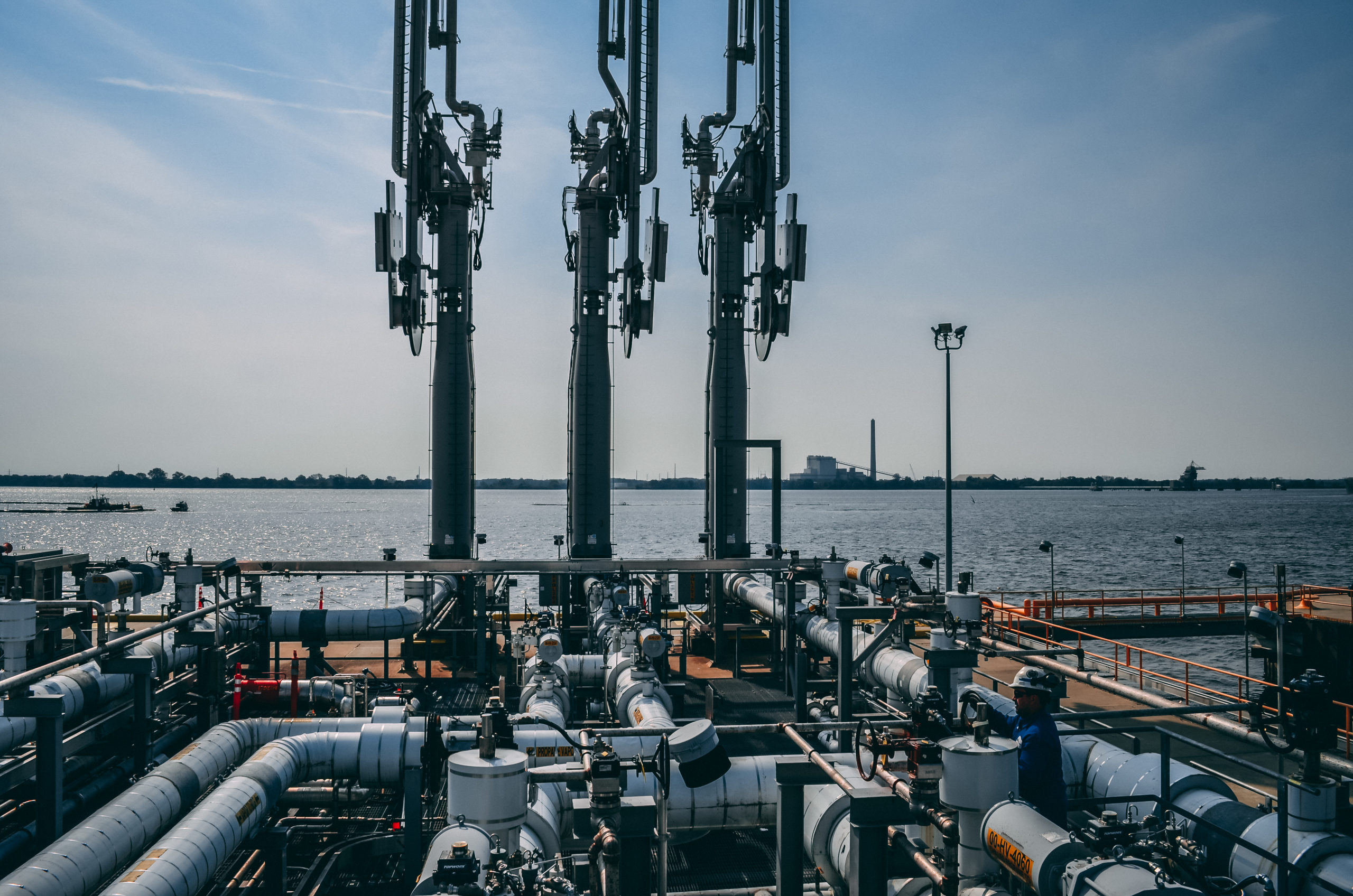Jim Dewar, Marcus Hook Terminal
For Jim Dewar, starting his shift at 4 a.m. isn’t so bad since he lives five minutes from his job at the Marcus Hook Terminal.
Jim is an Energy Transfer terminal operator at Marcus Hook, a position he has held for four years. He first joined the company in 2005, when he worked in security for Sunoco Logistics at the Eagle Point Terminal in New Jersey until 2009 (Energy Transfer acquired Sunoco Logistics in 2012). Jim’s father also worked for Sunoco Logistics.
Jim left the company for several years before rejoining in 2017, parlaying his security experience into his current role at Energy Transfer.
“I used to watch what terminal operators did and wonder if I could do that,” Jim said. “Now I am doing it. It’s kind of cool.”
Jim was born in Chester but spent most of his childhood in Linwood. In fact, after returning from the Navy and moving back to the area in 2005, he bought the family homestead in Linwood and began to raise his own family there. This year, thanks to the financial stability offered by his job as a terminal operator, he sold it and bought a new home in Claymont, Delaware, just five minutes from the Marcus Hook facility.
“This job is life-changing; the things I can give my family today are because I work here,” he said. “These guys care about us.”
On the Job
Jim is one of about 70 terminal operators at the Marcus Hook Terminal, where operators are generally assigned to one of two sides: terminal or processing. On the terminal side, operators safely manage incoming products from both ship and rail. On the processing side, operators oversee the processing of the natural gas liquids (NGLs), including propane, ethane and butane, that come into the terminal after being transported across Pennsylvania through the Mariner East pipeline system.
These operators also may work the boilerhouse, which provides steam for the entire facility. The three boilers at Marcus Hook take water from the Delaware River and ultimately turn it into steam that feeds every unit at the facility. Steam is a very important utility used for operating processes and cleaning equipment to make it safe to work on.
Jim works on the terminal side, with experience on all three aspects: railcars, docks and boilerhouse. Operators like Jim are “utility” operators who are qualified to work in more than one area.
Railcars
Jim started on railcar duty in 2017. Here, he helped to inspect and offload each railcar that came into Marcus Hook carrying propane, butane and natural gasoline.
“It’s our job to open it up, inspect the cars, take off caps, and attach pipes and hoses. Then we have equipment to open up and push vapor in, which pushes the product out,” Jim said. Before Mariner East was in service and flowing large volumes of these products, as many as 46 railcars came in every day. Today, thanks to the development and expansion of the Mariner East pipelines, the railcar volume has been reduced.
Docks
After learning railcar operations, Jim qualified on the docks, which is primarily where he works today. While the railcars generally bring product into the facility, requiring operators to offload and process it, it is typically the opposite at the docks. Here, operators usually load products onto ships for export, along with offloading crude oil and gasoline components.
When a ship comes in to be loaded with product, operators secure it to the pier and discuss logistics with the customer, including safety protocols, the amount and type of NGL products they are requesting, the product temperature, the transfer time, and so on. Then, they connect the equipment needed to load the product, including loading arms. A loading arm is a mechanical arm made of articulated steel pipes that connect a vessel to the cargo terminal.
The products start from storage tanks at the facility and are transported to the docks by pipe. NGL products have been chilled and stored in tanks near atmospheric pressures, so pumps are used to get the cold product from the Marcus Hook tanks to the ship’s tanks.
“I’ll go up and do what’s called a key meeting, when I talk to [the customer] about the process of what we’re doing,” Jim said. “Once we’re ready to start, they will open their valves and we will start pumps to start pushing the products onto the ship.”
Boilerhouse
Jim also became qualified for the boilerhouse job at Marcus Hook. While the role doesn’t involve loading or offloading products, it does have a lot to do with those products, Jim said. In fact, the boilerhouse provides the steam needed across the entire facility, including the process side and the natural gas liquids transported by the Mariner East pipelines.
“Of the three jobs, that’s the most important – you have to keep it running,” Jim explained. “It’s the most responsibility.”
There is steam inside every unit in the facility, used to operate process equipment and keep it running safely. As an additional layer of safety, there are three boilers at the Marcus Hook Industrial Complex so there is always a backup in case one goes offline.
In addition to his job as an Energy Transfer terminal operator, Jim remains in the Navy Reserves and was recently appointed vice president of his union, United Steelworkers Local 10-100.
With five kids and two grandkids at home, Jim is no stranger to hard work. He appreciates the opportunities that have been offered to him throughout his career.
“Providing a good life for my family is really important to me,” Jim said. “Financially, this job is a no-brainer, and it’s a solid group of people.”
To learn about Energy Transfer jobs in Marcus Hook and surrounding areas, visit energytransfer.com/careers and browse available opportunities.






